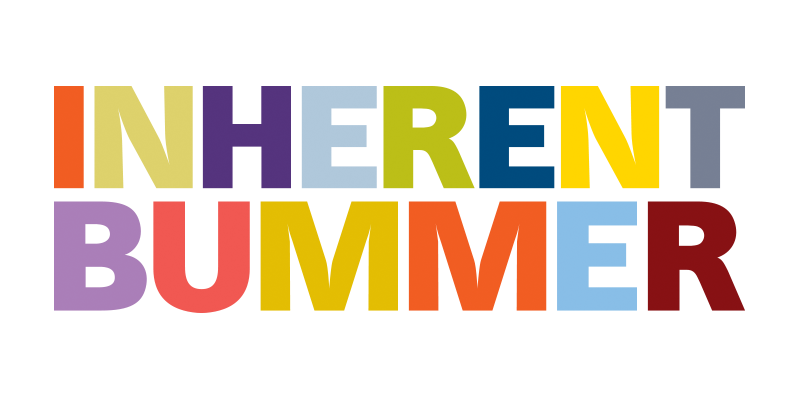A PRACTICAL GUIDE TO WRITING WHEN THERE’S NOTHING TO WRITE
Hello, hi, resident graduate student logging online again. Though it causes me great pain and cringe-inducing embarrassment to type it: I am a writer. Or, more accurately, I’m supposed to be a writer. But the doors of perception, as termed by the demigods, have been closed to me as of late. I’d like to say I’ve finished the project that I’m working on and I’m enthusiastically shopping it around, but really, I’ve completed fuck all.
These days, I spend most of my time eating peanut butter with a spoon while haphazardly absorbing photos on the Daily Mail or else squinting at Times New Roman headlines with one eye to see whether any undetected messages lurk between the characters. Sometimes I read, but there’s nothing like a little Rachel Cusk or Clarice Lispector to convince oneself that all the best words have already been written. Dip a single toe into the Hour of the Star and you’ll want to end your career before it even begins. Perhaps I’m projecting?
Sure, there are rare occasions when I make it to the end of the Daily Mail’s infinite drivel column (a feat worth hefty accolades) and find myself holding a pen or in a standoff with a threateningly white screen. At this juncture, authorial paralysis usually takes hold: I can’t think about anything else but the apparent spike in celebrity pregnancies (this season’s chicest accessory?); Brad Pitt’s ombré sweater; the psychology of face tats; non-essential organ removal; and apocalyptic fashion™ (having actually typed this sentence, my incoherent thought train does sound quite intriguing, though, critically, I don’t make it to the transcription phase of my “process” very often). Instead of accepting failure and wallowing in despondency, which, as a “writer”, I’m admittedly quite adept at doing, I’ve developed an antidote to a common problem: How to Write When There’s Nothing to Write.
What follows is my reliable methodology for jumpstarting the flow of ideas. Most of the ideas will be bad, but it’s good fun to try (and if you use any of my prompts: I accept cash, Venmo, PayPal, and personal checks).[1]
METHOD ONE: Dropping the Spoon
Salvador Dali’s preferred method of creative extraction.
Best applied when drowsy: sit in bed or in a chair holding a spoon over a metal bowl or similar metal receptacle.
As you drift to sleep, you’ll release your grip on the spoon and when the ensuing noise wakes you from your near sleep, quickly transcribe whatever it is you were dreaming, seeing, or thinking. You’ll access that special liminal space between being awake and being asleep called hypnagogia.
METHOD TWO: The Cut-Up Technique
Applied by William S. Burroughs, Brion Gysin, Kathy Acker, Radiohead, to name a few.
Find a few examples of a full, printed text; they can be your own work, someone else’s work, fiction, nonfiction, newspaper, magazines, etc. Cut these texts into pieces with a few phrases or words per piece. Rearrange these pieces and create a new text or poem.
For a variation on this technique, take two pieces of printed text and fold each piece in half vertically, combining each page together to create a new text. Read the resulting phrase or sentence.
METHOD THREE: Scrying or Asemic Writing
If you’ve read Shirley Jackson’s The Haunting of Hill House or have ever looked deeply into a crystal ball, you’ll know what I’m talking about.
Best applied by those capable of momentarily suspending their disbelief (though it is absolutely encouraged to suspend your disbelief ad infinitum).
Scrying is a form of divination in which the writer enters a meditative state and uses reflective or translucent objects like crystals or mirrors to interpret new images.
You can also enter said meditative state and allow “intangible beings” to write through you (and/or an additional person), à la ouija boards.
Another form of this is asemic writing, a technique of scrawling that encourages writers to write as freely as possible which allows the interpretation of new meaning in seemingly meaningless scrawl.
METHOD FOUR: Bibliomancy
This is another form of divination, a distant cousin of the I Ching. All you need is a book, ideally a reference book or a religious text.
With your eyes closed, balance the book on its spine or randomly flip to a page and place your finger somewhere on it. Use the passage where your finger lands as a writing prompt.
METHOD FIVE: Endless Question Session
While I would like to imply that I invented the ensuing ingenious meditation, I’m afraid Robert Anton Wilson (who, I think, derived his inspiration for this game from notorious sex addict, Aleister Crowley) would curse me from the afterlife if I tried.
Sit down in a comfortable spot with a notebook and a pen. Write down this question, “Why am I sitting here doing this exercise?”
You don’t have to necessarily write down your answer, but use it to write your next question. Repeat this endless spiral of questions for a set amount of time, though 10 to 30 minutes usually suffices.
Here’s an example: “Why am I doing this exercise?” Because I read about it in a Robert Anton Wilson book. “Why was I reading a book by Robert Anton Wilson?” Because a friend of mine recommended it to me. “Why did she recommend this book to me?” Because she thought that I would enjoy experimenting with different levels of consciousness. “Why did she think that I would be interested in experimenting with different levels of consciousness?” Because she once saw me reading a book by Carl Jung. And so on and so forth.
In Robert Anton Wilson’s words, this could lead you all the way to answers like: “I’m sitting here doing this exercise because the Scandinavians overfished the oceans in the North Sea in the fifth century. And they couldn’t make their living as fishermen anymore so they turned to piracy and that’s why my grandmother’s name was O’Loughlin, which means son of the day in Gaelic.’ And ultimately you come to, ‘because the Sun is the kind of star that has planets and this is the one planet that we know of in the solar system that can support this kind of life.’”
GENERAL NOTES:
Do not under any circumstances workshop your writing. You will feel empty, tired, and confused after receiving feedback from your (potentially Machiavellian) peers.
Procrastination is not procrastination, it is rumination and digestion.
Send your most tame writing to your mother. If you do not have a mother, a person who you are romantically involved with or who would like to be romantically involved with you should suffice. They will make you feel confident enough to continue writing.
Never use a thesaurus (unless you are writing a story about a person who uses a thesaurus).
Always do the dishes and sweep/vacuum the floor before you sit down to write.
Rarely will anything composed while intoxicated make sense to anyone but yourself (it will not even make sense to aforementioned mother/lover/sycophant).
Remember: the urge to put one’s thoughts to paper/screen is a compulsive disease.
If your name is Dane and you’re trying to restart a blog, hire me, I can help.
[1] All of these ideas have been borrowed from beings far more creative than myself, but I still want your money.




